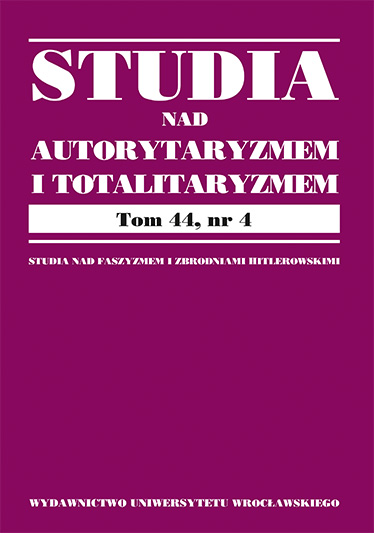

Articles

In this article the author aims to present the process of building a limited political pluralism system within the basic political institutions of Francoist Spain during the civil war of 1936–1939. Primarily, the author outlines the political structure of the national camp during the first months of the civil war. Subsequently, the basic normative acts constituting the foundations of the political system of the Spanish national institutions were presented, together with the description of the established institutions’ factual operation. These were the central administration bodies, i.e. State Technical Council (Junta Técnica del Estado) from October 1, 1936 to January 30, 1938, and then the government of Spain. The latter organ, apart from the basic function of the administrative apparatus, was a center for bringing together the representatives of the licensed political movements of the national camp and for the clashing of their programs. In addition, the process of political unification in the form of the Traditionalist Spanish Phalanx and that of the Councils of the National Syndicalist Offensive (Falange Española Tradicionalista y de las Juntas de Ofensiva Nacional Sindicalista; FET y de las JONS), an organization resembling a monoparty, founded on the program and tradition of the pre-war Spanish Phalanx, which was enriched and redefined by other political circles participating in the movement, is presented. Ultimately, the paper presents the ideological sources of the Spanish limited political pluralism model, pointing to the tradition of Carlism thought, Phalangism and the Acción Española movement. The conclusion resulting from the analysis is that the model adopted in Spain during the Civil War, which ensures, always limited, but still significant political pluralism within the ruling camp, resembles authoritarian rather than totalitarian solutions.